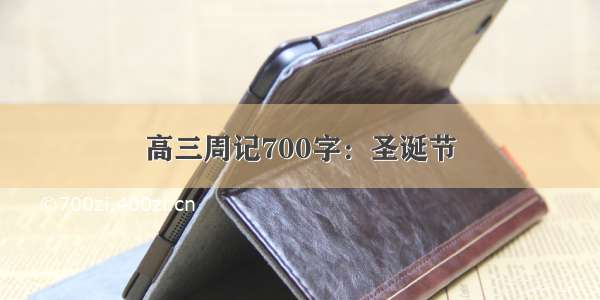
2. play the +西洋乐器 弹/拉…乐器
3. be good at doing sth.= do well in doing sth. 擅长做某事
4. be good with sb. 和某人相处地好
5. need sb. to do sth. 需要某人做某事
6. can + 动词原形 能/会做某事
7. a little + 不可数名词 一点儿…
8. join the…club 加入…俱乐部
9. like to do sth. =love to do sth. 喜欢/喜爱做某事
◆典句必背
1. —Can you draw? 你会画画吗?
—Yes, I can./No, I can’t. 是的,我会。/不,我不会。
2. —What club do you want to join? 你想加入哪个俱乐部?
—I want to join the chess club. 我想加入国际象棋俱乐部。
3. You can join the English club. 你可以加入英语俱乐部。
4. Sounds good./That sounds good. 听上去很好。
5. I can speak English and I can also play soccer. 我会说英语也会踢足球。
6. Please call Mrs. Miller at 555-3721. 请给米勒夫人拨打电话555-3721。
◆话题写作
主题:介绍自己特长/强项
Dear Sir,
I want to join your organization (组织) to help kids with sports, music and English.
My name is Mike. I am 15 years old. Im a student in No. 1 Middle school. I can play the guitar well. I can sing many songs. I can swim and speak English well, too. I think I can be good with the kids. I also do well in telling stories.
I hope to get your letter soon.
Yours,
Mike
Unit2 What time do you go to school?
◆短语归纳
1. what time 几点
2. go to school 去上学
3. get up 起床
4. take a shower 洗淋浴
5. brush teeth 刷牙
6. get to 到达
7. do homework 做家庭作业
8. go to work 去上班
9. go home 回家
10. eat breakfast 吃早饭
11. get dressed 穿上衣服
12. get home 到家
13. either…or… 要么…要么…
14. go to bed 上床睡觉
15. in the morning/afternoon/evening 在上午/下午/晚上
16. take a walk 散步
17. lots of=a lot of 许多,大量
18. radio station 广播电台
19. at night 在晚上
20. be late for=arrive late for 迟到
◆用法集萃
1. at + 具体时间点 在几点(几分)
2. eat breakfast/lunch/dinner 吃早饭/午饭/晚饭
3. thirty/half past +基数词 …点半
4. fifteen/a quarter to +基数词 差一刻到…点
5. take a/an+名词 从事…活动
6. from…to… 从…到…
7. need to do sth 需要做某事
◆典句必背
1. —What time do you usually get up? 你通常几点钟起床?
—I usually get up at six thirty. 我通常6:30起床。
2. That’s a funny time for breakfast. 那是个有趣的早餐时间。
3. —When do students usually eat dinner? 学生们通常什么时候吃完饭?
—They usually eat dinner at a quarter to seven in the evening. 他们通常在晚上6:45吃晚饭。
4. In the evening, I either watch TV or play computer games.
在晚上,我要么看电视,要么玩电脑游戏。
5. At twelve, she eats lots of fruit and vegetables for lunch.
在十二点,她午餐吃很多水果和蔬菜。
6. She knows it’s not good for her, but it tastes good.她知道它对她没好处,但是尝起来很好。
7. Here are your clothes. 这是你的衣服。
◆话题写作
主题:谈论日常作息习惯
My School Day
I am a student. I usually get up at seven, and I eat breakfast at seven thirty. Then I go to school at eight. School starts at eight thirty. I eat lunch at twelve. I go home at 17:00. I often eat dinner at 19:00 and then play the piano. I do my homework at 20:00. At 22:00, I go to bed.
Unit3 How do you get to school?
◆短语归纳
1. get to school 到达学校
2. take the subway 乘地铁
3. ride a bike 骑自行车
4. how far 多远
5. from home to school 从家到学校
6. every day 每天
7. take the bus 乘公共汽车
8. by bike 骑自行车
9. bus stop 公共汽车站
10. think of 认为
11. between…and… 在…和…之间
12. one 11-year-old boy 一个11岁的男孩 13.
play with… 和…玩
14. come true 实现
15. have to 不得不
◆用法集萃
1. take…to…= go to…by… 乘…去…
2. How do/does sb get to…? 某人是怎样到…的?
3. How far is it from…to…? 从…到…有多远?
4. It takes sb. some time to do sth. 做某事花费某人多长时间。 5. How long does it take to do sth.? …花费多长时间?
6. It is + adj. + to do sth. 做某事是…
7. Thanks for + n./Ving 感谢你(做)某事。
◆典句必背
1. —How do you get to school? 你怎么去上学?
—I ride my bike. 我骑自行车。
2. How far is it from your home to school? 从你家到学校有多远?
3. How long does it take you to get to school? 去上学花费你多久?
4. For many students, it is easy to get to school. 对很多学生来说,很容易到达学校。
5. There is a very big river between their school and the village. 在他们学校和村庄之间有一条很大的河流。
◆话题写作
主题:上学的交通方式
写作思路:②开篇点题:点出自己的出行方式;②具体内容:自己选择这种交通方式的原因;③结束语: 表明自己的观点。
The Best Way for Me to Go to School
Different students go to school in different ways in our school, but I llike to go to school on foot.
First, I live near the school, so my home is not far from my school. And it takes me a few minutes to get there. Second, there is a crossing on my way to school, and sometimes the traffic is very busy. I think it is safer to go to school on foot. Third, I think walking is good for my health. It’s a kind of sport and it makes me study better.
So in my opinion, the best way to go to school is on foot. What about you?
Unit4 Don’t eat in class.
◆短语归纳
1. on time 准时,按时
2. listen to… 听……
3. in class 在课上
4. be late for 做……迟到
5. have to 不得不
6. be quiet 安静
7. go out 外出
8. do the dishes 清洗餐具
9. make breakfast 做早饭
10. make (one’s) bed 铺床
11. be noisy 吵闹
12. keep one’s hair short 留短发
13. play with sb. 和某人一起玩
14. play the piano 弹钢琴
15. have fun 玩得高兴
16. make rules 制订规则
◆用法集萃
1. Don’t + 动词原形+其他。 不要做某事。
2. help sb. (to) do sth. 帮助某人做某事
3. too many + 可数名词复数 太多的……
4. practice doing sth. 练习做某事
5. be strict with sb. 对某人要求严格
6. be strict in sth. 对某事要求严格
7. leave sth sp. 把某物落在某地
8. keep+宾语+形容词 使……保持某种状态
9. learn to do sth. 学会做某事
10. have to do sth. 不得不做某事
◆典句必背
1. Don’t arrive late for class. 上课不要迟到。
2. Can we bring music players to school? 我们可以带音乐播放器到学校吗?
3. And we always have to wear the school uniform. 并且我们总是不得不穿校服。
4. There are too many rules! 有太多的规则!
5. Don’t leave the dirty dishes in the kitchen! 不要把脏盘子留在厨房里!
6. I have to keep my hair short. 我不得不留短发。
◆话题写作
主题:规则
Dear Tom,
Thanks for your last letter. You want to know the rules in our school. Now let me tell you about them.
We can’t arrive late for class. We can’t talk loudly in class. We should keep quiet. When we meet our teachers on our way, we should say hello to them. We can’t eat or drink in class, and we can’t listen to music or play games in class.
I think we have too many rules. What about yours? Please write and tell me.
Yours,
Li Ming
Unit5 Why do you like pandas?
◆短语归纳
1. kind of 有几分,有点儿
2. be from/come from 来自于
3. South Africa 南非
4. all day 整天
5. for a long time 很长时间
6. get lost 迷路
7. places with food and water 有食物和水的地方
8. cut down 砍倒
9. in (great) danger 处于(极大)危险之中
10. twelve years old 十二岁
11. things made of ivory 由象牙制成的东西
◆用法集萃
1. —Why…? 为什么……?
—Because… 因为……
2. let sb. do sth. 让某人做某事
3. want to do sth. 想要做某事
4. one of+名词复数 ……之一
5. forget to do sth. 忘记要做某事
6. forget doing sth. 忘记做过某事
7. help sb. (to) do sth. 帮助某人做某事
8. be friendly to sb. 对某人友好
◆典句必背
1. —Why do you like pandas? 你为什么喜欢熊猫?
—Because they’re kind of interesting. 因为它们有点儿有趣。
2. —Why does John like koalas? 约翰为什么喜欢树袋熊?
—Because they’re very cute. 因为它们非常可爱。
3. —Why don’t you like tigers? 你为什么不喜欢老虎?
—Because they’re really scary. 因为它们真的吓人。
4. —Where are lions from? 狮子来自哪里?
—They’re from South Africa. 它们来自南非。
5. Elephants can walk for a long time and never get lost. 大象能走很长时间并且从不迷路。
6. They can also remember places with food and water. 它们也能记住有食物和水的地方。
7. But elephants are in great danger. 但是,大象处于极大危险之中。
8. People cut down many trees so elephants are losing their homes.
人们砍倒了许多树,因此,大象渐渐失去它们的家园。
9. Today there are only about 3,000 elephants (over 100,000 before)
现在仅有大约3000头大象(之前超过10万头大象)。
10.Isn’t she beautiful? 她难道不美丽吗?
◆话题写作
主题:介绍自己喜欢的动物
The Animal I Like
There are many kinds of animals in the world. What animal do I like? Let’s know her.
Many people like her very much. I also like her. She is from China. She is very cute. She doesn’t eat grass and meat at all. She eats bamboo every day. She is so nice. She is black and white. She has two big black ears and eyes. And she also has black legs and arms.
What animal is she? She is a panda. I like panda very much. Do you like her? What animal do you like?
Unit6 I’m watching TV.
◆短语归纳
1. watch TV 看电视
2. read a newspaper 看报纸
3. talk on the phone 通过电话交谈
4. listen to music 听音乐
5. use the computer 使用电脑
6. make soup 做汤
7. wash the dishes 洗餐具
8. kind of 有点儿
◆用法集萃
1. —What + be+ 主语+ doing? ……正在做什么?
—主语+ be + doing sth. ……正在做某事。
2. I’d love/like to do sth. 我愿意做某事。
3. any other+可数名词单数 其他任何一个……
4. wish to do sth. 希望做某事
◆典句必背
1. —Why are you doing? 你在做什么?
—I’m watching TV. 我在看电视。
2. —What’s she doing? 她在做什么?
—She’s washing her clothes. 她在洗她的衣服。
3. —What are they doing? 他们在做什么?
—They’re listening to a CD. 他们在听一张CD 唱片。
4. —Are you doing your homework? 你在做你的家庭作业吗?
—Yes, I am. / No, I’m not. I’m cleaning my room. 是的,我在做。/不,我没有。我在打扫我的房间。
5. Zhu Hui misses his family and wishes to have his mom’s delicious zongzi.
朱辉思念他的家人并希望吃上他妈妈的可口粽子。
◆话题写作
主题:描述正在发生的事情
It’s seven o’clock in the evening. Kate’s family are all at home.
Kate is doing her homework. Her father is reading a book. Her mother is watching TV. Her grandfather is listening to the radio and her grandmother is cleaning the room. Her sister, Betty, is playing computer games.
They are all enjoying themselves.
Unit7 It’s raining!
◆短语归纳
1. not bad 不错
2. at the park 在公园
3. take a message for… 为……捎个口信
4. have a good time/have a great time/have fun/enjoy oneself 过得愉快
5. call sb. back 给某人回电话
6. no problem 没问题
7. right now 现在
8. talk on the phone 通过电话交谈
9. some of ......当中的一些
10. by the pool 在游泳池边
11. drink orange juice 喝橙汁
12. study hard 努力学习
13. on a vacation 在度假
14. in the mountains 在山里
15. call sb. 给某人打电话
16. write to sb. 给某人写信
◆用法集萃
1. tell sb. (not) to do sth. 告诉某人(不要)做某事
2. have a great time/have fun + (in) doing sth. 愉快地做某事
3. just right for doing sth. 做某事正合适
◆典句必背
1. How’s the weather?
天气怎么样?
2. It’s cloudy. / It’s sunny. / It’s raining.
天气多云。/ 天气晴朗。/ 天正下雨。
3. How’s it going?
情况怎么样?
4. Great! /Not bad./Terrible!
好极了!/ 不错。/糟糕!
5. Can I take a message for him?
我给他捎个口信好吗?
6. I’m having a great time visiting my aunt in Canada.
我正在加拿大愉快地拜访我的姑姑。
7. My family and I are on a vacation in the mountains.
我和我的家人正在山里度假。
8. It’s hot in your country now, isn’t it?
现在你的国家天气炎热,不是吗?
◆话题写作
主题:介绍某地的天气
The Weather in Beijing
Hello, everyone! I’m from Beijing. Do you want to know the weather in Beijing? Now let me tell you something about the weather here.
In Beijing, spring is very short and warm. In summer, it’s very hot, but it often rains. We often go swimming in the river. In autumn, the weather is very dry and cool. We often go to the farm to work with the farmers to help them. In winter, it’s very cold, and sometimes it’s snowy and windy.
I like swimming, so summer is my favorite season.
Unit8 Is there a post office near here?
◆短语归纳
1. post office 邮局
2. police station 警察局
3. pay phone 付费电话
4. Bridge Street 桥街
5. Center Street 中心大街
6. Long Street 长街
7. near here 附近
8. across from 在……对面
9. next to 挨着,靠近
10. between…and… 在……和……之间
11. in front of 在……前面
12. excuse me 劳驾
13. far from 离……远
14. go along… 沿着……走
15. turn right/left 向右/左转
16. on the(或one’s) right/left 在(某人的)右边/左边
17. in my neighborhood 在我的街区
18. look like 看起来像
19. in life 一生中
20. be free 免费的/有空的
◆用法集萃
1. Turn right / left at the +序数词+ crossing. 在第几个路口向右 / 左转。
2. spend + 时间 /金钱 + on sth. 花费时间/金钱在......
spend + 时间 / +金钱 (in) doing sth. 花费时间/金钱做某事
3. watch sb. doing 观看某人正在做某事
4. enjoy doing sth. 喜欢做某事
◆典句必背
1. —Is there a hospital near here? 这附近有医院吗?
—Yes, there is. It’s on Bridge Street. 是的,有。它在桥街上。
2. —Oh… where’s Center Street? 噢……中心大街在哪里?
—It’s not too far from here. 它离这儿不太远。
3. Go along Long Street and it’s on the right. 沿着长街走,它在右边。
4. Turn right at the first crossing. 在第一个十字路口向右转。
◆话题写作
主题:指路
Where is the hotel? Let me tell you how to get there. Go down this road and then turn left. Go through First Street and Second Street. When you come to Third Street, turn right and walk on. You can see a bridge over a river. Go across the bridge. Then you can see the hotel. It’s on your right, across from the post office. You will find it.
Unit9 What does he look like?
◆短语归纳
1. short hair 短发
2. long hair 长发
3. curly hair 卷发
4. straight hair 直发
5. (be) of medium height 中等个子
6. (be) of medium build 中等身材
7. go to the movies 去看电影
8. a little 有点儿
9. look like 看起来像
10. a big nose 大鼻子
11. a small mouth 小嘴巴
12. a round face 圆脸
13. black hair 黑发
14. big eyes 大眼睛
15. a long face 长脸
16. the same way 同样的方式
17. in the end 最后
18. blonde hair 金黄色的头发
◆用法集萃
1. What does / do + 主语 + look like? ……长得什么样?
2. sb. + be + of + medium build / height 某人中等身材/个子
3. sb. + has +… hair 某人留着……头发
4. sb. wears + ... 某人穿着/戴着……
◆典句必背
1. —What does he look like? 他长什么样?
—He’s really tall. 他真的很高。
2. —Do they have straight or curly hair? 他们留直发还是卷发?
—They have curly hair. 他们留卷发。
3. —Is he tall or short? 他高还是矮?
—He isn’t tall or short. He’s of medium height. 他不高不矮。他中等个子。
4. The man with a pair of glasses is my English teacher. 那个戴眼镜的男人是我的英语老师。
◆话题写作
主题:介绍某人的外貌
Lost
Kate, a twelve –year-old girl, is lost in the street.
She is of medium height with short hair. She has a round face and small eyes. She wears a pair of glasses. She wears a white shirt, a pair of blue jeans and a pair of black sports shoes.
If anyone knows her, please call Mr. Green at 26458132. Thanks a lot.
Unit10 I’d like some noodles.
◆短语归纳
1. would like 想要
2. take one’s order 点菜
3. beef soup 牛肉汤
4. one bowl of… 一碗……
5. what size 什么尺寸
6. mapo tofu with rice 麻婆豆腐盖饭
7. what kind 什么种类
8. small / medium / large bowl 小/ 中/大碗
9. green tea 绿茶
10. orange juice 橘汁
11. around the world 世界各地
12. birthday cake 生日蛋糕
13. the number of… ......的数量
14. make a wish 许个愿望
15. blow out 吹灭
16. in one go 一口气
17. come true 实现
18. cut up 切碎
◆用法集萃
1. would like + sth. 想要某物
2. would like + to do sth. 想要做某事
3. Why don’t you + do sth.? 何不做某事?
4. the number of + 名词复数 ……的数量;a number of+名词复数 许多……
◆典句必背
1. What kind of noodles would you like? 你想要哪种面条?
2. I’d like beef noodles, please. 我想要牛肉面。
3. What size would you like? 你想要多大的?
4. I’d like a medium bowl, please. 我想要一个中碗的。
5. Would you like a large bowl? 你想要一个大碗的吗?
6. Yes, please. 好吧。
7. If he or she blows out all the candles in one go, the wish will come true. 假如他或她一口气吹灭所有的蜡烛,愿望将实现。
◆话题写作
主题:介绍自己最喜欢的食物
My Favorite Food
I’m a middle school student. I like to eat healthy food. I have milk, eggs and bread for breakfast. For lunch I would like rice, fish and vegetables. I like chicken, juice, rice and hamburgers for supper. Of all the food, my favorite food is chicken and apple juice.
Unit11 How was your school trip?
◆短语归纳
1. go for a walk 去散步
2. milk a cow 挤牛奶
3. ride a horse 骑马
4. feed chickens 喂小鸡
5. talk with 与……谈话
6. take photos 拍照
7. quite a lot 相当多
8. show… around 带领……参观
9. learn about 了解
10. from… to… 从……到……
11. grow strawberries 种植草莓
12. pick strawberries 采草莓
13. in the countryside 在乡下
14. go fishing 去钓鱼
15. at night 在夜晚
16. a lot of 许多;大量
17. come out 出来
18. go on a school trip 去学校郊游
19. along the way 沿线
20. after that 之后
21. buy sth. for sb. 为某人买某物
22. all in all 总的来说
23. take a / the train 乘火车
24. be interested in 对……感兴趣
25. not… at all 根本不……
◆用法集萃
1. How + be…? + like? ……怎么样?
2. too many + 可数名词复数 太多的……
3. teach sb. how to do sth. 教某人怎样做某事
4. quite + a / an + 形容词+可数名词单数 = a + very + 形容+可数名词单数 一个相当 / 很……的......
◆典句必背
1. —How was your school trip? 你的学校郊游怎么样?
—It was great! 好极了!
2. —Did you go to the zoo? 你去动物园了吗?
—No, I didn’t. I went to a farm. 不,没有。我去农场了。
3. —Did you see any cows? 你看见一些牛奶了吗?
—Yes, I did. I saw quite a lot. 是的,我看见了,我看见相当多(的牛奶)
4. —Were the strawberries good? 这些草莓是好的吗?
— Yes, they were. 是的,它们是。 / No, they weren’t. 不,它们不是。
5. Everything was about robots and I’m not interested in that. 一切都是关于机器人的,我对那方面不感兴趣。
◆话题写作
主题:介绍过去的活动
I had a busy weekend. On Saturday morning, I did my homework, and then I played computer games. In the afternoon, I visited my grandmother. We talked for a long time.
On Sunday morning, I cleaned my room and did some reading. Then I cooked for m parents. In the afternoon, I watched a football match on TV and listened to music. I had a good time.
Unit12 What did you do last weekend?
◆短语归纳
1. do my homework 做我的家庭作业
2. go to cinema 去看电影
3. go boating / camping 去划船 / 去野营
4. play badminton 打羽毛球
5. on Saturday morning 在星期六早上
6. work as 以……身份而工作
7. have a good weekend 周末过得愉快
8. kind of 有点儿
9. stay up late 熬夜
10. run away 跑开
11. shout at 对……大声叫嚷
12. fly a kite 放风筝
13. high school 中学
14. put up 搭起,举起
15. in the countryside 在乡下
16. get a surprise 吃惊
17. make a fire 生火
18. each other 互相
19. so… that… 如此……以至于……
20. go to sleep 入睡
21. the next morning 第二天早上
22. look out of…向……外看
23. shout to 冲……呼喊
24. up and down 上上下下
25. wake…up 把……弄醒
26. move into… 移进……
27. a swimming pool 一个游泳池
◆用法集萃
1. go + doing 去做某事
2. play + 球类 玩……球
3. 时间段+ ago ……前
4. keep + sb. / sth. + 形容词 / 副词 / 介词短语 使……保持……
5. so + 形容词 / 副词+ that 句子 如此……以至于……
6. see sb. doing sth. 看见某人正在做某事
7. let sb. do sth. 让某人做某事
8. start to do / doing sth. 开始做某事
◆典句必背
1. —What did you do last weekend? 上个周末你做什么了?
—I did my homework. / We went boating. 我做了我的家庭作业。/我们去划船了。
2. —Who visited her grandma? 谁看望了她的奶奶?
— Becky did. 贝姬看望了。
3. My sister finished high school two weeks ago. 我的姐姐两周前中学毕业了。
4. But I was so tired that I went to sleep early. 但是我是如此疲倦,以至于我很早就睡着了。
◆话题写作
主题:介绍过去发生的一件事情
My friend Li Hua came to visit me on May Day. During the following days I showed him around the city.
We went to the Guangzhou Museum on the morning of May 2. We learned much about the history of Guangzhou. In the afternoon., we climbed the Baiyun Hills. It was really great fun! In the evening. I took Li Hua to the night zoo. It was interesting to see animals at night. The next day, we went to the bookshops to buy books.
Though we were very tired, we enjoyed ourselves very much.
一. 情态动词can的用法
can+动词原形,它不随主语的人称和数而变化。
1. 含有can的肯定句:主语+can+谓语动词的原形+其他。
2. 含有can的否定句:主语+can +动词的原形+其他。
3. 变一般疑问句时,把can提前:Can+主语+动词原形+其他? 肯定回答:Yes,主语+can。否定回答:No,主语+can .
4. 含有can的特殊疑问句:特殊疑问词+can+主语+动词原形+其他?
I can speak English.→I can speak English.→Can you speak English? →What can you speak?
二. what time和when引导的特殊疑问句
1. 询问钟点时用what time,询问日期、月份、年份时用when。
2. Whats the time?=What time is it?现在几点了?
3. 时刻表达法:顺读法和逆读法。
顺读法:“钟点+分钟”直接读数字。
如:7: 05 seven five;8:16 eight sixteen
逆读法:借助介词past或to表示,要先说分再说钟点。
a. 当分钟不超过30分钟时(包括30分钟),即 或=30,用past表示。其结构为:“分钟+past+整点” 意为“几点过几分”。
如:1:25 twenty-five past one
b. 当超过30分钟时,即 30,用to表示。其结构为:“所差分钟(即60—所 过分钟数)+to+下一个整点”,to译成“差”,差几分钟到几点。
如:4:38 twenty-two to five
c. 当分钟为30分钟用half表示,当分钟为15分钟用a quarter。
三. how引导的特殊疑问句
1. how 引导的特殊疑问句提问交通方式,其答语分三种情况:
a. take a/an/the+交通工具(单数)
b. by+交通工具(单数)
c. on/in+限定词+交通工具
---How do you go to school every day?
---I take a bus to go to school every day./I go to school by bus every day./I go to school on the bus every day.
2. how far 用来提问距离,多远,其答语分为两种:
(1)用长度单位表示:It is five kilometers.
(2)用时间表示:It’s twenty minutes’walk.
3. how long 用来提问时间,意为多久回答常用“for+段时”。
----How long have you learnt English?
----For 3 years.
4. how soon 用来提问做完某事还需要多长时间, 用于将来时态, 常用“in+时间段”来回答。
----How soon will you arrive in Beijing? ----In 3 hours.
四. 祈使句
祈使句一般表示请求、命令、劝说、号召、警告等。一般以动词原形开头,句末可以用感叹号或句号。
1. 肯定的祈使句:
(1) 实义动词原形+其他 :Please look at that boy.
(2) be动词原形+形容词+其他:Be quiet, please.
2. 否定的祈使句:
(1) Don’t+实义动词+原形 Don stand there.
(2) Don’t be+形容词+其他 Don be so noisy.
(4) No+n./V-ing
No photos. 不许照相。
No talking. 不许谈话。
五. 现在进行时
现在进行时指当前时间正在发生的动作。常与now,at this moment,listen,look等词连用。
1. 现在进行时的基本结构
肯定式:am/is/are+doing(现在分词)
否定式:am/is/are not +doing(现在分词)
一般疑问式:Am/Is/Are + 主语 +doing(现在分词)+ 其他
特殊疑问式:特殊疑问词+一般疑问式
They’re having a meeting now. 他们现在正在开会。
They aren having a meeting now. 他们现在没有在开会。
Are they having a meeting now? 他们现在正在开会吗?
What are they doing now? 他们现在正在做什么?
2. 现在进行时的基本用法
(1)表示此时此刻正在发生的事情。常与now,at the moment,look,listen等词连用。
The little boy is watching TV now. 这个小男孩现在正在看电视。
Listen!She is playing the guitar in the next room. 听!她正在隔壁房间弹吉他。
(2)表示现阶段一直在进行着或是重复发生着的动作,不强调此时此刻正在做。常与表示时间段的时间状语连用。
I am studying computer this term. 这个学期我一直在学习计算机。
(3)表示说话人褒义或贬义的情感色彩,如赞许、批评、喜欢、厌恶等。此时常与alway、often等频度副词连用。
He is always thinking of others , not of himself. 他总是为他人着想,而不为自己。(表示赞许)
One of my roommates is often leaving things about. 我的一个室友经常乱扔东西。(表示不满)
(4)表示在近期按计划或安排要发生的动作。(现在进行时表示一般将来的含义。)
① 瞬时动词的进行时在任何情况下都表示将来含义。这些动词包括go , come , leave,arrive , return等。
I am leaving.
我将要离开了。
I am leaving tomorrow.
我将会明天离开。
② 持续动词的进行时,只有在有将来时间状语或将来语境的情况下才可以表示将来含义。
An American professor is giving a lecture this afternoon.
今天下午一位美国教授将要作报告。(将来含义)
An American professor is giving a lecture.
一个美国教授正在作报告。(进行含义)
3. 现在分词(doing)的变化规则
(1)一般在情况下,在动词词尾加-ing。
go——going
play——playing
know——knowing
(2)以不发音的字母e结尾动词,先去e再加-ing。
make——making
arrive——arriving
come——coming
(3)以重读闭音节结尾,且动词词尾只有一个辅音字母时,先双写这个辅音字母,再加-ing。
run——running
stop——stopping
swim——swimming
run——running
put——putting
sit——sitting
begin——beginning
plan——planning
cut——cutting
get——getting
shop——shopping
chat——chatting
regret——regretting
dig——digging
(4)以-ie结尾,先将-ie改成y,再加-ing。
tie——tying
die——dying
lie——lying
六. There be结构
1. There be句型主要用以表达“某处有某人(某物),强调存在”其基本结构为“There be+某物(某人)+某地”,有时为了强调地点,也可把地点状语放在句首。
There is a book on the desk.
On the desk there is a book.
(1)肯定句:“There be+主语(某人/某物)+介词短语”
There are three people in my family. 我家有三口人。
There is a pen and two books on the desk. 书桌上有一支钢笔和两本书。
(2)否定式:“There be +not+主语+介词短语”
There isn’t a boy in the room.房间里没有一个男孩。
There aren’t any books on the desk.书桌上没有书。
注意:“There be句型”的否定式的构成和含有be动词的其他句型一样,在be后加not或no即可。
注意not和no的不同:not是副词,no为形容词,所以not a/an/any+n,相当于no+n。
There aren’t any pictures on the wall.
=There are no pictures on the wall.
There isn’t a bike behind the tree.
=There is no bike behind the tree.
(3)疑问式:Be there+主语+介词短语?”
肯定回答是:“Yes, there be.”否定回答是:“No, there+be与not的缩写形式”。
—Is there a lamp in your bedroom?在你的卧室里有台灯吗?
—Yes, there is.是的,有。
—Are there any clock in the living room?客厅里有钟吗?
—No, there aren’t.不,没有。
(4)特殊疑问句:一般有两种句型结构
How many+复数名词+are/were there+介词短语?
There’re many children in the park.
How many children are there in the park?
How much+不可数名词+is/was there+介词短语?
There was little rain around the year.
How much rain was there around the year?
2. have表示“某人拥有某人或某物,强调拥有和所属关系”。
The man has two cars.
3. There be句型中的就近原则,即be和距其最近的主语保持一致。
There are some pens and a book on the floor. =There is a book and some pears on the floor.
七. 选择疑问句
选择疑问句是指说话人提出两种或以上的情况,让对方选择是哪一种,两个选择部分用or连接。选择疑问句不用yes或no来回答,直接在两个选择里选一个回答。
---Is she tall or short? ---She is tall.
---Can you play the piano or play the guitar? ---I can play the piano
八. 名词
1. 名词单数变复数规则
在英语里面,名词分可数名词(countable noun)和不可数名词(uncountable noun)。不可数名词没有单复数之分,用时只当单数词用;可数名词有单复数之分,一个的前面要用a或an,eg: a pencil, a basketball, a dictionary, an egg, an ID card,而复数即两个或两个以上的要作相应的变化,情况如下:
(1)一般的词在单数词后直接+“s”
book→books,pen→pens,car→cars,map→maps,cartoon→cartoons
(2)以s,x,sh,ch结尾的词+“es”
box→boxes,watch→watches
(3)以辅音字母+y结尾的名词去掉“y”,改成“i”,再加“es”
family→families,comedy→comedies
(4)以f或fe结尾的词,先去掉f或fe,改成“v”再加es
knife→knives,wife→wives,handkerchief→handkerchieves
(5) 特殊词,特殊变化,需单独记:
child→children,man→men,foot→feet,woman→women
tooth→teeth,sheep→sheep,deer→deer
2. 既是可数名词又是不可数名词的单词
chicken当“鸡肉”讲时是不可数,当“小鸡”讲时可数;
room当“空间”讲时不可数,当“房间”讲时可数;
fish当食物用“鱼、鱼肉”讲时不可数,当“鱼的种类”讲时可数;
hair泛指“毛发”时不可数,当“一根或几根毛发”讲时可数;
sound意思是“一般性的声音”时,不可数,指“一次发出的声音”时可数;
paper当“纸”讲时不可数,当“试卷”、“论文”、“证件”讲时可数;
time当“时间”讲时不可数,当“时代、倍数、次数”讲时可数;
exercise泛指“锻炼”时不可数,当“练习、做操”讲时可数
九. 一般过去时
一般过去时表示在过去某个时间所发生的动作或所处的状态(与现在无关) 。常与yesterday, last week, in 1989, just now, a moment ago, the other day等过去具体时间状语连用。
He was here just now.
他刚才还在这里。
What did you do yesterday?
你昨天做了什么事?
一般过去时基本结构
1. 肯定句形式:主语+动词过去式+其他
I was an English teacher one year ago.
一年前我是一名英语老师。
I bought a yellow dress yesterday afternoon.
昨天下午我买了一条黄裙子。
2. 否定句形式:①was/were+not; ②在行为动词前加didn ,同时还原行为动词
I wasn an English teacher one year ago.
一年前我不是一名英语老师。
I didn buy a yellow dress yesterday afternoon.
昨天下午我没买一条黄裙子。
3. 一般疑问句:①was/were提到句首; ②Did+主语+动词原形+其他?
Were you an English teacher one year ago?
一年前你是一名英语老师吗?
Did you buy a yellow dress yesterday afternoon?
昨天下午你买了一条黄裙子吗?
4. 特殊疑问句:特殊疑问词+一般疑问句
What were you one year ago?
一年前你是做什么的?
●●●END●●●
来源丨初中英语
版权归属原作者所有,如有侵权请联系我们
















